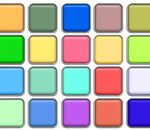Spanish Version
Mission
The program of Architecture at the Universidad Veracruzana is a public academic institution located in four regions: Cordoba, Xalapa, Poza Rica and Veracruz with the degree in architecture, which is characterized by being relevant, quality and a social approach whose mission is contribute to the integral formation (human, intellectual, social and professional) architects friendly with the environment, developing living spaces aware of their urban implications to contribute to social transformation.
Vision to 2025
It is a public academic institution recognized by society for its relevance and excellence, allowing its graduates through performance in the public and private sectors in national and international areas, face contemporary challenges and create life scenarios that meet the requirements of society and the economic, political and environmental conditions constantly changing, flexibility, adaptability and constant innovation. The values that we grow are: respect, solidarity, cooperation, responsibility, honesty, critical and reflective sensibility, service and creativity.
Values
Cultivated values are: respect, solidarity, cooperation, responsibility, honesty, critical and reflective sensibility, service and creativity.
Ingress Profile
The applicant to pursue a career in architecture must have technical and humanistic knowledge, possess a general culture, show reflective capacity, synthesis, reasoning and imagination. You must have penchant for the arts and their techniques; by logic, mathematics; own interests and firm will to lead the values, thinking skills and creativity with a positive attitude and conscious.
Egress Profile
Social agent resulting from the program. A perceptive, committed and solidary with society professional that contributes to solving the problems of the environment, which exerts architecture concepts and emanating reality values, able to understand and interpret it, and it investigates the causality and nature of the processes to develop proposals consistent with the context.
Justification
In recent years the trend of architectural education has been strengthened towards the formation of architects based on flexible curricula with curriculum design competency and teaching processes aimed towards the construction of knowledge with strength in a field of study or with a defined profile, either in the area of construction, urban planning and architectural design, turning the specialization of knowledge in determining training and exercise of discipline. This situation allows improving the quality of professional specifics and increases competitiveness, it is positive for academic development and discipline of their environment and improves the quality conditions work together. International congresses of architecture have not been oblivious to this process of specialization of knowledge; thanks to them has been the need for training in different fields of the profession, addressing more suitability areas that are incumbent to architecture, such as: ecological strategic urban planning, integrating urbanism, urban design and architectural, use of appropriate technologies, the poetics of space inspired by the determinants of the place, relevant to the global context, and ethical management and construction of projects to ensure the social, environmental and economic sustainability of space. Clearly the need for scientific and artistic architectural education and improvement in the quality of the research process and the exercise of discipline that constitute the link to strengthen development and environmental conditions today; It requires the architect visualize the importance of discipline for the efficient and effective functioning of social, physical and environmental systems of the territory in which inhabits society, ensuring its vitality and optimal conditions for their harmonious and relevant growth. Since the formulation of these guidelines for the justification of the Educational Program (PE) Architecture of the Universidad Veracruzana (UV) arises and proposes that it is essential to strengthen the training of the student as a local policy related to new educational trends, incorporating also strategies that respond to trends in the discipline, which allow the program and future professionals function in a changing, full of challenges and opportunities the world, aware of the complexity of cities that require more trained graduates with ethical values, human and a high level of scientific and creative responsibility.
Objective
To form architects in a holistic way (intellectual, human, social and professional), competent in the generation and application of knowledge in architectural, urban and building design, to create and implement specific innovative projects of living space with a sustainable approach.
The 2013-2017 Strategic Plan of the Universidad Veracruzana proposed by the rector Sara Deifilia Ladrón de Guevara González, incorporates federal public policies, state (National Development Plan 2013-2018 and 2013-2018 Education Sector Programme) (2011-2016 Veracruzano Education Program ) and institutional (General Development Plan 2025) related to the quality of education in Mexico.
The main approaches of federal and state programs seek to ensure the quality of learning, comprehensive training, strengthen the quality and relevance of education, job training, promote scientific and technological education, ensuring greater coverage inclusion and educational equity. On the other hand poses improve the quality of education, increase the training of teachers involved in lifelong learning opportunities, improve educational outcomes student achievement, increase links with the productive sector, social participation to improve performance and management Community and establish a sustainable development project in education. Regarding the General Development Plan 2025 Universidad Veracruzana concepts such as arise: university system networking, educational innovation, comprehensive care of students, strengthening the academic staff, the search for a sustainable university, internationalization, democratic and transparent management, quality management, planning and sustained development in academia.
From the above, the Work Plan 2013- 2017 which is based on three strategic axes follows:
academic innovation: Educational programs that meet national and international standards of quality, quality academic staff, students attracting and retaining quality, socially relevant research quality.
Presence in the environment with relevance and social.
Professional Field
|
|
Information: Mtro. Max Mondragón Olán Coordinator of the Educative Program in Architecture Tel: (229) 775 2000 |
|
|
|
|





